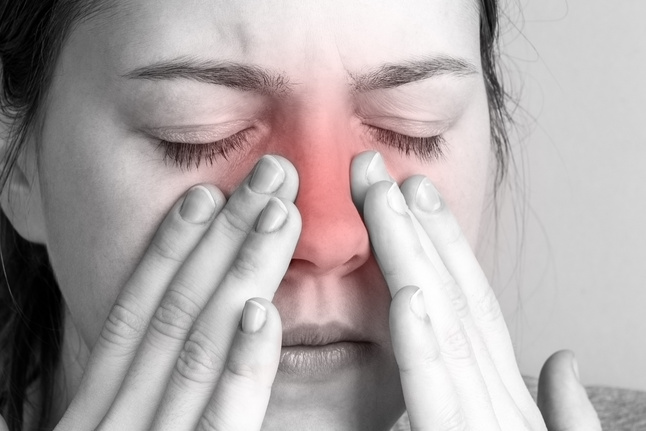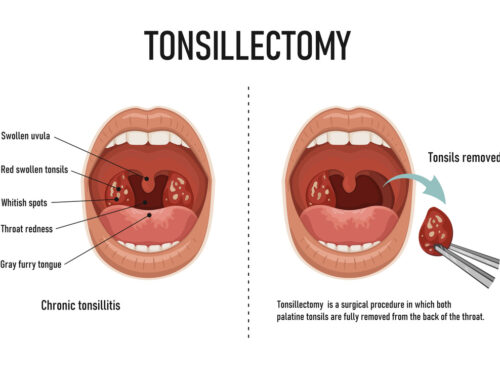A guide to chronic sinusitis
Chronic sinusitis is a common medical condition that affects millions of people worldwide. This condition is characterised by inflammation of the sinus lining, which can lead to congestion, pain and difficulty breathing. In this blog post, we will discuss what chronic sinusitis is, its causes and symptoms, how it is diagnosed, how it can be treated, and how to prevent it.
What is chronic sinusitis?
Sinuses are air-filled spaces located behind the forehead, cheeks and eyes. These spaces are lined with mucus membranes that help to trap dust, pollutants and other particles that enter the nose. Chronic sinusitis occurs when the mucus membranes become inflamed and swollen, preventing the sinuses from draining properly. This leads to a build-up of mucus, which can become infected, causing further inflammation and pain.
Chronic sinusitis is different from acute sinusitis, which is a temporary inflammation of the sinuses that usually resolves within a few weeks. Chronic sinusitis, on the other hand, lasts for more than 12 weeks and can be a recurring condition.
Causes of chronic sinusitis
The exact cause of chronic sinusitis is not always clear. However, some factors that can contribute to this condition include:
- Nasal polyps: These are non-cancerous growths that develop in the lining of the nose or sinuses.
- Allergies: Allergies like hay fever can lead to inflammation.
- Infections: Bacterial, fungal or viral infections can all cause chronic sinusitis.
- Structural issues: Structural problems in the nasal cavity, such as a deviated septum or narrow sinuses, can result in chronic sinusitis.
Symptoms of chronic sinusitis
The symptoms of chronic sinusitis can vary from person to person, but some common ones include:
- Facial pain (forehead, cheeks or around the eyes)
- Congestion
- Nasal discharge (thick, yellow or green mucus from the nose or down the back of the throat)
- Headache
- Reduced sense of smell
- Fatigue
If you begin to experience any of these problems, you should contact your local GP or hospital for a checkup.
Can the infection spread?
In some particularly bad cases, chronic sinusitis can spread to other parts of your face. This can cause a long-term fever and headache as well as general pain in your cheeks, neck and joints. You might also have a cough and congestion that makes it hard for you to breathe through your nose. If this happens, you will need antibiotics.
Sinusitis-induced facial infections can be very painful and uncomfortable. They can make you feel sick or experience trouble breathing. If you have a bad case of this, it’s important to see a doctor right away so that they can prescribe the right medication.
How is chronic sinusitis diagnosed?
If you are experiencing symptoms of chronic sinusitis, your doctor may perform a physical exam to look for signs of inflammation in the nose and sinuses. They may also order imaging tests, such as a CT scan or MRI, to get a closer look at what may be causing the condition.
Another test that can be used to diagnose chronic sinusitis is a nasal endoscopy. During this procedure, a thin, flexible tube with a camera on the end is inserted into the nose to examine the sinuses.
To prepare for one of these procedures, you need to follow these steps:
- Remove all jewellery.
- Use a decongestant spray to clear your nose. The doctor may also prescribe an oral antihistamine such as diphenhydramine or cetirizine, which can dry up nasal passages and help prevent post-procedure bleeding from freshly cut tissue.
- Take an antibiotic such as azithromycin or amoxicillin if you were given one by your doctor before surgery; this will help prevent infection.
- Avoid aspirin, ibuprofen or other blood thinners for two weeks before the procedure because they can cause excessive bleeding during and after.
- Do not smoke for two weeks before or after surgery. This can slow healing and increase your risk of infection.
How to treat chronic sinusitis
The treatment for chronic sinusitis depends on the underlying cause of the condition. If allergies are the cause, your doctor may recommend allergy medications, such as antihistamines or nasal corticosteroids. If an infection is causing chronic sinusitis, your doctor may prescribe antibiotics or antifungal medications.
In some cases, surgery may be necessary to correct structural issues in the nasal cavity or to remove nasal polyps that are causing chronic sinusitis. In addition to medical treatments, there are some home remedies that can help relieve the symptoms of chronic sinusitis. These include:
- Nasal irrigation: Using a saline solution to flush out the sinuses can help reduce congestion and improve breathing.
- Steam inhalation: Inhaling steam can help to moisten the sinuses and reduce inflammation.
- Warm compresses: Placing a warm compress over the sinuses can help to relieve pain and pressure.
Is chronic sinusitis contagious?
Chronic sinusitis is not contagious, as it’s not caused by viral pathogens or bacteria. It is a condition that affects your nose and sinuses, however, so it can heighten your chances of catching upper respiratory illnesses.
How to prevent chronic sinusitis
Preventing chronic sinusitis involves several measures. Avoiding exposure to irritants such as cigarette smoke, air pollution and other allergens can reduce the likelihood of developing sinusitis.
Maintaining good hygiene practices such as washing hands frequently, avoiding close contact with individuals who have colds or flu, and regularly cleaning surfaces can also help prevent the spread of sinus infections.
Additionally, keeping the sinuses hydrated by drinking plenty of fluids, using a humidifier or taking a hot shower can prevent the buildup of mucus and reduce the risk of chronic sinusitis.
There are also some preventative measures you can take, such as eating a balanced diet and maintaining your overall health. This means eating well, getting enough sleep and exercising regularly. If you do develop a cold or respiratory illness, make sure that you treat it as soon as possible.
Long-term complications of chronic sinusitis
As chronic sinusitis is a long-term condition, you can experience some lasting side effects, including:
- Nasal polyps and scarring
In some situations, the inflammation caused by recurring infections can lead to nasal polyps and scarring that affect the structure of your nose. Polyps are small bumps that grow in or around your sinuses. They are usually soft, but sometimes they can be firm enough to feel like a grape under your skin. They are often present with sinusitis because they form as an immune response to bacteria or other irritants in the nose.
Facial pain
The pressure from swollen tissue inside the face may cause pain behind one or both eyes which doesn’t go away, even with treatment. Some people describe it as being similar to having sand in their eyes when they blink, whilst others say it feels like something is pressing against their cheekbones from inside their nasal cavity.
Headaches
These are common among those suffering from chronic sinusitis; they often occur after getting up from lying down flat on either side for long periods at night due to increased pressure within the retrograde venous flow pathway.
Contact ENT 150 Harley Street
If you’re suffering from chronic sinusitis and would like to explore possible treatment options, contact us today at ENT 150 Harley Street for more advice. One of our rhinologists will be more than happy to advise on your specific case.






